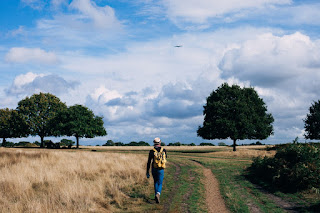It took me a while to remember that the coach who became the reason I pursued this path was not my first ADHD coach. I’d worked with another coach some years before, but the memory hadn’t stuck with me because I’d gained little benefit from the experience. I’ve realised this is because I approached the second coaching relationship with a completely different set of attitudes and intentions then the first. Here are some of the things I’d advise anyone who wishes to gain full benefit from coaching to do.
1. Come prepared
From the very first session, and each session after that, figure out what it is you want to work on with your coach. A great way to do this is to compile a list of topics and challenges before your first session so you have ample material that will pull you toward your goals. You can also watch for topics throughout the week, in between sessions. I found after a while I began to see exactly what I wanted out of certain topics, such as a plan or clarifying what was tripping me up in a particular area.
2. Be aware
Knowing where you are in each area of your life is awesome for getting a jump-start on changing the areas that most need attention. When you know you have a tendency to neglect your physical health, for example, it makes it easier to begin to address that challenge. There are many tools for assisting with this such as filling out a life wheel.
3. Homework
There are many names for this, such as action steps, intentions, and “help-work” which is a particularly upbeat one I learned at ADDCA. It’s essential to keep careful track of the things you plan to do between sessions. This also looks different to different people. I personally use a notebook and reminder app. Whatever way works for you, use it to remember and stay aware of the actions you and your coach figure out together.
4. Ask for what you need
In the style of coaching I was taught, it is part of the coach’s job to assist in challenging the client the correct amount so they are launched forward and do not become overwhelmed. Figure out what this looks like for you and ask your coach to partner with you in planning it. I’ve found that answering quickly when asked about challenging myself leads to overwhelm or not challenging myself enough. I now give myself permission to pause and really consider myself, the week ahead, my energy, and other factors that impact my current ability to be challenged.
5. Detailed plans
When the action steps have been decided, be as detailed as needed in order to have the highest possibility of success. Also watch out for getting caught up in the planning as a way to avoid taking the first step. This is a behavior I’ve found myself in all too often.
6. Regularly reassess
Make sure to frequently check in on the progress toward goals. This will assist with awareness if something is stuck and impeding progress. I find it helps me to simply remember goals. I have so many plates I’m spinning all at once that it’s easy for one to fall without me noticing.
7. Celebrate successes
The other thing number 6 can do is highlight victories and successes. Actively look for those, during every coaching session and in between. Celebration can be a powerful force in momentum forward. When I check on the spinning plates and find none have fallen that is definitely cause for some celebratory dancing.
8. Prioritize self care
Particularly for those of us with ADHD, no one can achieve their full potential if they are not operating at peak performance. Start with Maslow’s Hierarchy of Needs and figure out what you need to get all your needs met. I review my considerable list of needs frequently and am always at my happiest and most efficient when they are more consistently met.
9. Take full advantage
Any given coach may offer a range of services in addition to coaching session. Ask about these and see if any would benefit you. As a coach, as long as boundaries are respected on both sides, I am always thrilled when a client utilizes all possible benefit I can be to them.
What allowed you to gain the most from an opportunity to change?









